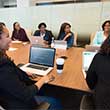In the realm of artificial intelligence, where advancements are rapid and widespread, ethical concerns and potential misuse are inevitable. One significant issue that has surfaced is the use of AI, specifically tools like ChatGPT, by students to complete their assignments. In response, OpenAI has initiated the development of a tool designed to detect instances of AI-generated content, particularly in academic settings. This effort underscores the organization's commitment to promoting ethical AI use while acknowledging the complexities and broader implications involved.
The Problem of AI in Academia
The integration of AI in education has brought numerous benefits, from personalized learning experiences to instant access to information. However, it has also opened the door to potential academic dishonesty. With AI models like ChatGPT capable of generating high-quality written content, some students might be tempted to use these tools to complete assignments, essays, or even exams. This misuse not only undermines the integrity of the educational system but also hampers the learning process for students who resort to such practices.
OpenAI's Response: Text Watermarking
To address this challenge, OpenAI is exploring the concept of text watermarking. This method involves embedding a subtle, identifiable marker within the text generated by AI. Such a marker would not be detectable by the average reader but could be identified using specific tools or algorithms. This way, educators and institutions can verify whether a piece of text was authored by a human or an AI, thus discouraging students from using AI to cheat.
In a statement provided to the media, an OpenAI spokesperson confirmed the company's ongoing research into this watermarking method. The spokesperson emphasized that OpenAI is taking a "deliberate approach" due to the "complexities involved and its likely impact on the broader ecosystem beyond OpenAI."
The Complexities and Broader Implications
The development and implementation of text watermarking are not without challenges. One primary concern is ensuring that the watermark is robust and reliable, without being easily circumvented by tech-savvy users. Additionally, the solution must balance effectiveness with privacy and ethical considerations. For instance, overly intrusive methods of detection could raise concerns about surveillance and user trust.
Moreover, the impact of such a tool extends beyond academic settings. Many industries rely on AI-generated content for various purposes, from marketing to customer service. Introducing watermarking could affect these sectors, necessitating a careful and thoughtful approach to ensure that the benefits outweigh any potential drawbacks.
A Deliberate Approach for a Sustainable Solution
OpenAI's commitment to a "deliberate approach" signifies the company's recognition of the nuanced landscape it navigates. The goal is not merely to prevent academic dishonesty but to foster an environment where AI is used responsibly and ethically. By engaging with educators, technologists, and policymakers, OpenAI aims to develop a solution that upholds academic integrity without stifling innovation or infringing on privacy.
Conclusion
The initiative to implement text watermarking in AI-generated content represents a significant step towards addressing the ethical challenges posed by advanced AI tools like ChatGPT. OpenAI's proactive stance and careful consideration of the broader implications highlight the organization's dedication to ethical AI use. As this research progresses, it will be crucial to maintain a balanced perspective, ensuring that solutions promote integrity and trust while fostering the positive potential of AI in education and beyond.
In the evolving dialogue around AI and ethics, OpenAI's efforts to address academic integrity serve as a reminder of the importance of responsible innovation. By working towards solutions that are both effective and considerate of broader impacts, OpenAI continues to pave the way for a future where AI is a trusted and ethical partner in human endeavors.










